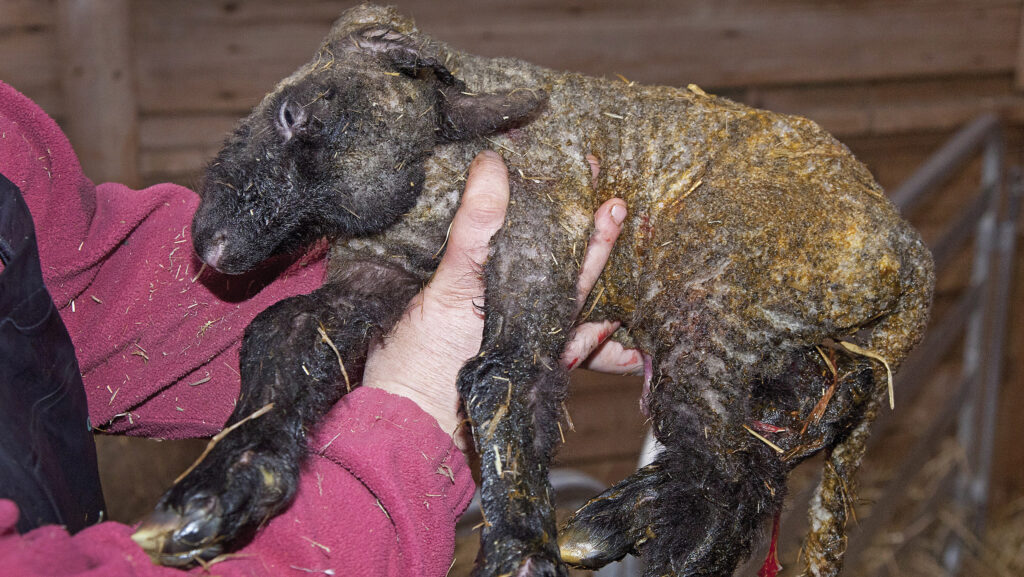Schmallenberg strikes early lambing flocks across the UK
 © Jonathan Page
© Jonathan Page Early lambing flocks across the UK have been impacted by Schmallenberg virus, with reports of deformities in newborn lambs and higher abortion rates.
Affected areas include Northern Ireland, Scotland, the north of England, and parts of the Midlands, with some regions seeing cases for the first time.
National Sheep Association (NSA) chief executive Phil Stocker confirmed that the virus has been present for about a month, with “some fairly serious reports” coming in from affected areas.
See also: Several bluetongue restrictions lifted but zones to remain
He noted that Schmallenberg typically fades as the lambing season progresses, with early lambing flocks typically most vulnerable.
Mr Stocker suggested that shifting towards later lambing could help because the first part of the pregnancy cycle for early lambers (in the autumn) coincides with peak midge activity.
Schmallenberg virus poses a significant risk to the sheep sector due to the lack of a vaccine in the UK.
Mr Stocker stressed the importance of testing to distinguish Schmallenberg from bluetongue, as symptoms can overlap.
The Animal and Plant Health Agency (Apha) is offering free Schmallenberg testing in England and Wales, and the NFU has confirmed the virus remains a regional issue for now.
A farm in Dumfries and Galloway was particularly hard-hit, losing 90 out of 150 lambs, with many born alive but severely deformed. Some lambs were stillborn.
Bluetongue concerns
Dr Ami Sawran, a clinical director at Westpoint Vets, said Schmallenberg was just one of the pathological agents that can cause high barren rates, stillborn or deformed calves and lambs.
“It is also important to remember that we do not yet know the full extent of the effects that bluetongue virus has had on fertility and calves and lambs that are being born around now,” he said.
“This is why it is very important to report poorer than expected fertility results, high barren rates, stillbirths and abortions, as well as the arrival of deformed or neurologically affected neonates to your vet so that testing may be carried out.”
NFU chief livestock adviser John Royle added that the situation may worsen, with bluetongue virus potentially contributing to higher barren rates and deformed calves and lambs.
“This may be the tip of the iceberg as we see the virus overwinter resulting in emergence much earlier,” he warned.
